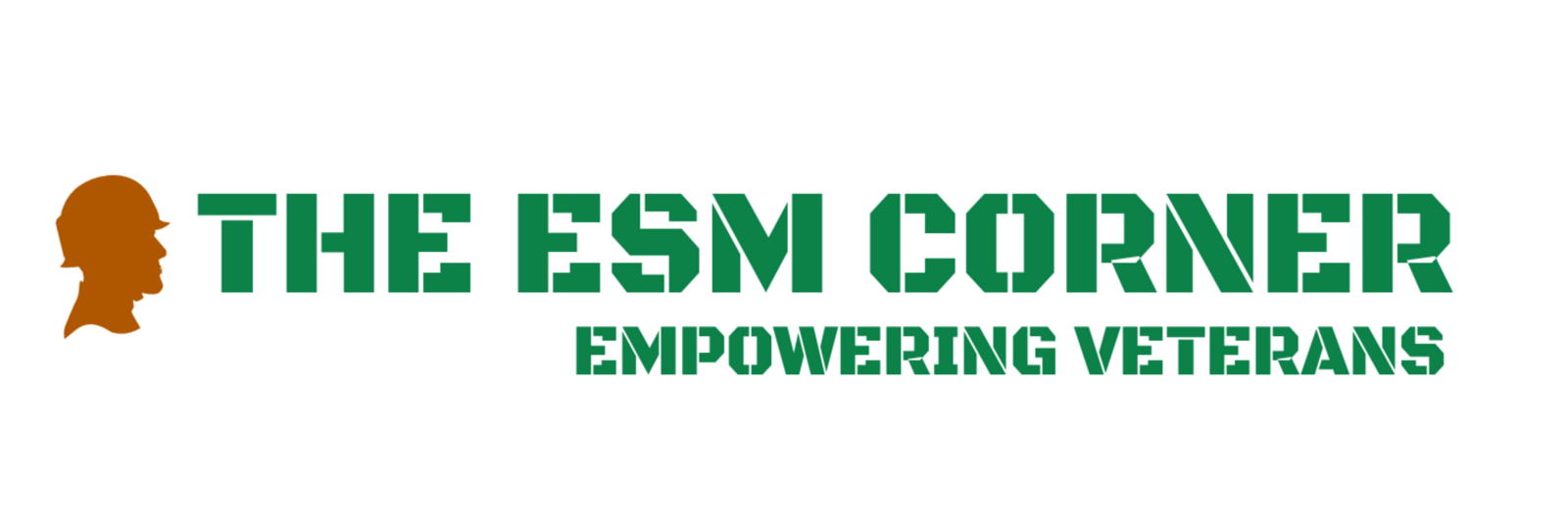THINK & PLAN (BEFORE 18 MONTHS TO 02 MONTHS)

Before you retire, it’s important to think and plan for what comes next. This phase will help you to prepare for the big changes in your life. It reminds you to do important things while in service, like organizing your papers and getting permission to apply for a new job. This part ensures you feel ready and sure about retiring. It’s divided into two parts: Points to consider and actions to follow accordingly. The first part makes you reflect on important aspects, and the second part gives clear guidance on what actions to take based on those reflections. This makes the transition into retirement smoother and more understandable.
POINTS TO CONSIDER:
LIFESTYLE CONSIDERATIONS:
1. Designing Your Retirement Lifestyle:
Before you retire give a thought about what makes you happy. Whether you have decided to retire in your early forties, looking to start a new job or business, or you have superannuated and considering a layback time ahead. Take out some time to imagine what makes u truly happy. Consider the activity that brings joy and purpose to your life. This is critical adaptation while planning your retirement to make sure it aligns with your thoughts and dreams.
2. Balancing Lifestyle and Finances:
FAMILY IMPACT
Family impact means how something affects or changes the way a family functions and feels. And whenever there are any positive or negative occurrences in our lives, our families also experience happiness, sadness, or relatable change in their life as well. Retirement is one such event that can influence the family, which is why we are addressing it in the discussion.
1. Prioritize Family in Retirement:
While thinking of your retirement, consider how it will affect your family’s emotions, health, schedules, impacts of relocation or shifting, children’s education, sports, extracurricular activities, and finances. Have an open discussion with your family and try to understand their mindset and aspirations. Reach agreements on crucial aspects like living arrangements and future finances. Collaborating and planning as a family ensures mutual care and inclusivity. Explain the Importance of their support and how it will simplify the journey for everyone. With the support of your family, the pursuit of your retirement goals becomes a more meaningful and attainable journey.
2. Feelings Matter too :
Retirement could bring various feelings for you and your family, from happiness to worries about future uncertainty. It’s crucial to discuss these emotions and take necessary actions to overcome them. Giving importance to your family’s perspective strengthens the relationship. Conversation and planning alone ensure a positive retirement experience for everyone and bring your family closer. Understanding and addressing concerns as a family makes the transition smoother and more enjoyable. Open communication fosters a supportive environment, making retirement a happy and unified time.
PERSONAL DEVELOPMENT
Personal development is the journey of enhancing oneself across different facets of life, this includes skills up-gradation, knowledge enhancement, health, relationships and wellbeing. For those who have retired, it’s a way to find joy and purpose in life after work, helping them handle the changes and challenges that come with getting older. By focusing on personal growth, retirees can keep adapting to new situations, ensuring they lead a satisfying and meaningful life even after their career have ended.
1. Discovering Your Path in Personal Development:
Find what you love doing and pursue it. Think about your hobbies and activities that make you happy. These can lead you to new adventures or commitments in your retirement. Figure out what makes you feel fulfilled and look for ways to include these in your retired life. Match your interests with potential jobs or hobbies that give you a sense of purpose and contentment. Participating in activities you enjoy during retirement can bring more happiness and purpose to your life.
2. Crafting a Purposeful Personal Development Journey:
Consider areas for improvement before retirement. Identify skills you wish to acquire, goals you aim to achieve, and knowledge you want to gain. Establish clear, measurable goals, breaking them into manageable steps. Create a plan outlining tasks and timelines. Seek assistance from individuals who can provide guidance, enrol in relevant classes, and allocate dedicated time for self-learning. Cultivate a continuous learning mindset, staying curious about the world. This proactive approach not only enhances personal and work-life satisfaction but also contributes to a fulfilling retirement. Embracing growth and learning is a valuable mindset that serves you well in retirement and throughout your entire life.
Click here to read about 17 Must-Learn Skills for ESMs
MENTAL AND EMOTIONAL PREPAREDNESS
1. Navigating Emotions in Retirement:
So, when you retire, you might have different feelings. You might feel sad or unsure about what happens next. It’s important to know that it’s okay to have these feelings and talk about them with your family or friends. This will help you feel better and more composed during retirement.
2. Cultivating Mental and Emotional Resilience:
It’s important to take care of our feelings and thoughts when we retire. Sometimes we may feel sad or low, but it’s helpful to talk to someone or join a group where others have similar experiences. Doing things that make us happy, like hobbies or being with friends, can make us feel better. Following a daily routine that focuses on our mental health, like sleeping enough, staying active, and eating healthy, is also important. Having people around us who care about us, like family or friends, can give us love and support. By taking care of our emotions, doing things that make us happy, and looking after ourselves, we can be strong and ready for retirement.
12 Things You Will Love About Retirement
HEALTH AND WELLNESS
1. Prioritizing Health in Retirement Planning:
Before you retire, it’s important to think about your health. Start by visiting a doctor to see how you’re doing and if there are any problems you need to take care of. Make sure you are making good choices for your health and not bringing any bad habits into retirement.
2. Holistic/ Wholesome Approach to Well-Being:
Maintaining health after a doctor’s check-up involves several steps. Firstly, it’s essential to adopt a healthier lifestyle and engage in physical fitness activities. Regular doctor visits are crucial for monitoring health. Collaborating with your doctor is important to manage any health conditions and to develop a treatment plan. Living a healthy life includes exercising, eating nutritious food, and caring for your mental well-being. Before settling down for retirement, ensure the availability of quality healthcare facilities and specialists. Mental health can be preserved by participating in activities that bring joy. Good habits such as adequate sleep, proper hydration, refraining from smoking, and personal hygiene are also vital. These practices are the foundation for a healthy and fulfilling retirement.
10 bad Habits to Avoid After Retirement
ACTION TO TAKE:
INSIDE THE ORGANISATION (FAUJI KAARWAYI FOR ARMY PERSONS ONLY)
1. Check Your Warning Order and Discharge Order :
Ensure that you have checked and thoroughly reviewed the warning order that has been issued now. The warning order contains crucial information regarding your retirement process, timelines, and any specific instructions you need to follow. The discharge order will be released soon. Read them carefully and follow the instructions and laid down procedures for smooth discharge or retirement drill.
2. Verify Personal Documents:
Verify all personal documents, including Date of Birth, name spellings, and other details for both yourself and your dependents. Cross-check this information with the sheet roll (It contains your entire data, every Part II order and every casualty since your enrolment) and it is available in the ARPAN web (accessible through Unit Login). Ensure that the data is accurate and make corrections if necessary.
3. Address Corrections Promptly:
If there are any discrepancies, or corrections needed in your personal information, take prompt action to address them. Accurate records are essential for a smooth transition into retirement, and corrections should be made through the appropriate channels. Timely corrections (if any) and rectification of mistakes/errors in your service documents in terms of your and your dependents’ DOB, Name, Birth Demise, Mismatch of name and DOB in UID (Aadhaar), PAN and other casualties will help you streamline the discharge process.
4. Obtain No Objection Certificate (NOC):
If you are planning to apply for a government job after retirement, obtain a No Objection Certificate (NOC) from your Records. This ensures that there are no obstacles or objections to your pursuit in applying for any exam that is being held while you are in service. This will also, help you to get leave for the exam.
5. Check Pending Claims:
Review and check for any pending claims that require your attention like Luggage Claims, Children’s Education Allowance, or any pending casualty publication with financial implications. Address these claims promptly to avoid any delays or complications in the settlement process.
6. Explore Resettlement Courses:
Begin with exploring for resettlement courses available on the Directorate General Resettlement (DGR) website. These courses can be beneficial for your resettlement and can also aid in your preparation for post-retirement employment. Choose the courses strategically, based on your interests and future plans, not on the preference of being near to hometown.
Top 10 valued resettlement courses sponsored by DGR for Indian armed forces retirees and veterans.
7. Collect Necessary Banking Documents:
Collect essential banking documents from your bank, including details of your salary account, bank passbook, and joint/single account cheques. Having these documents readily available will prevent last-minute delays during the retirement process. Remember to check that your joint account is also your salary account and that it’s designated as a Defence Salary Package (DSP) account. This ensures you continue to receive the benefits of a DSP account for life. If your salary account isn’t already a DSP account, consider converting it soon. Additionally, make sure to obtain a chequebook for your joint account that lists both your and your spouse’s names in the correct order. This will streamline financial transactions and ensure you’re both prepared for the future.
07 benefits of SBI DSP- Pension-account.
8. Keep Photocopies and Necessary Documents Handy:
Ensure that you have photocopies of important documents such as UID, PAN card, and other necessary identification papers of yours and your dependents. Having these documents handy will streamline the administrative processes during retirement.
9. Review the Warning Order and Discharge order thoroughly:
Before the final stages of retirement, go through your warning order and discharge order once again. Ensure that all necessary actions have been taken, and there are no outstanding tasks or requirements that need your attention.
10. Undergo Your Release Medical Board Timely:
Ensure completing your Release Medical Board (RMB) on time, especially if you’re in the Low Medical Category (LMC). This involves getting a final medical checkup and obtaining the doctor’s opinion for your last medical board. Completing the RMB on schedule not only saves time for other tasks but also reduces stress by checking upon an important item from your to-do list.
Know more about disability pensions.
By precisely following these steps, you can have a smooth and well-prepared transition into retirement within the organizational framework designed for army personnel.
FINANCIAL ASSESSMENT
1. Compile Your Financial Documents:
Re-collect all your relevant financial documents, such as Fixed Deposit certificates, Public Provident Fund (PPF) statements, Life Insurance policies, Term Deposit records, or any other investment or insurance documents you may have. Gather information about your savings, investments, and liabilities. This includes summarizing outstanding debts. To make a comprehensive financial calculation for Assets and liabilities, Income, Expenses and Savings. Make a table, calculate your assets and liabilities, and plan to either balance them or increase your assets.

2. Determine Your Future Income Streams:
Use the Pension Calculator to estimate your expected pension benefits. The Lump Sum amount in terms of Gratuity, APPF Fund, Leave Encashment amount and other remaining adjustments you might be getting at the time of retirement. Understand the structure of your pension plan. Additionally, figure out other post-retirement income sources, such as returns from investments, income from part-time, work income from rented property etc.
Click here to learn more about Your Pension.
3. Create a comprehensive Budget plan:
To make a good plan for the flow of your money, figure out how much will be your estimated monthly expenditure. List out your primary (unavoidable) and secondary (avoidable) expenses and then make a monthly budget out of it. A long-term plan that includes everything you will require as you grow older such as a residential property, Children’s education and any other contingent (accidental) expenses must be worked out parallelly. Make sure your plans are achievable and help you reach your financial goals.
4 Make an Emergency Fund:
Check and update your emergency savings regularly to make sure you have enough wealth to cover your expenses for a few months in case something unexpected happens. Think about any changes in your financial situation or life and make sure your emergency savings are enough to cover those too. Having a sufficient amount of emergency funds helps you feel safe and secure. Also, be careful about things that could affect your money in the long run. Make sure you have some insurance, like life and health insurance, to protect you and your family. Taking care of these small things helps keep you and your wealth safe.

why veterans should have emergency fund, click here to learn
1. Here’s how to be smart about paying back debts:
When it comes to paying back debts, it’s smart to first deal with loans that have high interest. Plan to pay these off bit by bit when you retire. Make a schedule for repayment and try to finish paying them off quickly. You could combine all your debts into one, which might make it easier to manage and save on interest. Another option is to use some of your retirement money to pay off your debts, so you can enjoy your retirement without owing anything.
Click here to learn about debt consolidation.
2 It’s important to save money for emergencies.
You should have enough money saved up to cover your living costs for 3-6 months. Keep this money in your bank account which you can easily withdraw in unforeseen situations. Apart from the general expenses it is necessary to maintain a reserve fund for meeting random expenses. Having a good emergency fund is like having a safety net for your wealth, which can help you when such situations arise.
Know how to use credit cards wisely?
POST-RETIREMENT ACCOMMODATION
1. Choosing Where to Live After Retirement:
When planning for retirement, it’s important to choose where to live carefully. Consider if you’d like to stay in your current home or explore other options like buying or renting a new place. Evaluate your current home’s location, accessibility, cost, and how well it fits your retirement lifestyle and your family’s needs, including education and local amenities like hospitals, banks, and parks. Pick a location that suits your way of life and future plans. Discuss with your family to ensure the place works well for everyone’s jobs and aspirations. Making these decisions together will help ensure a comfortable retirement for all.
2. Financial Side of Relocating or Downsizing After Retirement:
When thinking about relocating after retirement, it’s important to keep finances in mind. Your new home will affect your budget, especially if you sell your current house. Relocating costs money and different places have different living costs, like maintenance, education, and transportation.
Look for places that fit your budget and retirement lifestyle. Some areas are great for retirees, with lots of amenities and services. Make sure you know if you can buy or rent there, and if it’s easy to get around. Choose a place where you’ll be comfortable as you age and that won’t strain your finances. Consider places that offer amenities like ECHS-empanelled hospitals, CSD facilities, and better educational institutions for children.

POST-RETIREMENT INVESTMENT PLANNING
1. Smart Investments for a Secure Retirement
Deciding where to invest your post-retirement funds is crucial, especially if you’ve earned significant amounts from Gratuity, Leave Encashment, Provident Fund, and other allowances. It’s smart to think carefully about where to Invest this money so that it stays safe and grows good enough to beat the inflation.
Immediate steps to take after you have received your lumpsum amount and why?
2. Ensuring Financial Safety
Making wise financial decisions with your savings is crucial once you retire. Smart investing can help ensure you have sufficient funds for your needs as you age, reducing dependence on government pensions. It’s also key to safeguard your savings from inflation by diversifying your investments, which can also minimize risks. Planning for your legacy and considering your family’s future needs is essential. Seeking advice from a financial advisor can provide tailored guidance for your post-retirement plans.
Know more about safe Investing in Government schemes.
EDUCATION FOR CHILDREN
1. Ensuring Smooth School/College Transition:
Moving to a new place can affect your child’s education, so it’s important to plan ahead. Make sure the change is as easy as possible for them. Finding the right school should be a top priority because it’s a big part of their future. Look for good schools in the new area, and understand how to get your child enrolled. A smooth transition to a new school will help your child adapt and continue their education without being affected.
2. Prioritizing Quality Education in a New Home:
When moving to a new place, it’s important to find good schools/colleges for your children. Look into the schools/Colleges to see if they have a good reputation, are recognised, and have good infrastructure. Make sure they offer classes and activities of your kid’s choice. Make smart decisions to give your kids the best education in their new place. Also, check out Sports facilities and hobby centers they can join apart from school. Through this engagement, they can learn newer skills and be more social and it will also minimise the impact of moving to a new place and school.
Click here to learn more about our education section
HEALTHCARE PLANNING
1. Navigating Post-Retirement Healthcare Benefits:
To understand healthcare benefits after you retire, it’s important to know about the medical expenses that are covered under Government facilities like ECHS and Empanelled hospitals. It’s also good to know what services are being offered and if there are any limitations to the services being offered. This will help you to make fair decisions about your healthcare when you’re retired. ECHS helps our community with their subsidized healthcare costs. You can learn about what it covers, how much it pays for, and other related rules you must be aware of. You and your dependents must be familiar with the nearest Polyclinic, its procedure and its empanelled hospitals for specialized services.
(Click here to check https://www.echsbpa.utiitsl.com/ECHS/guest.do. Knowing this will help you find any gaps in your coverage that can be filled using other health insurance.

Click here to learn more about ECHS.
2 Addressing Health Insurance Needs:
Consider getting additional health insurance for family members not covered by ECHS. Assess your family’s health needs and potential future medical expenses. Explore various health insurance plans to complement your existing coverage and ensure your family’s well-being. Familiarize yourself with the terms of the insurance, such as waiting periods, coverage of pre-existing conditions, and renewal options. Regularly review and update your insurance to maintain adequate coverage for your family’s needs.
SECOND CAREER OR PURSUITS: EDUCATION, SKILL ENHANCEMENT & JOB PREPARATION
Since u had planned for retirement, u might have a vision for your second innings which could be a new job (Private or Government sector) or your own business. The following may be considered accordingly:
1. Identifying Interests and Skills:
Start by identifying your passions and strengths, as these will guide you towards suitable career paths. For example, if you’re interested in government jobs, consider preparing for exams like SSC (CGL/CHSL/GD), Banking exams and state exams which have some reservations for Ex-servicemen. Alternatively, if you wish to continue serving in the defence sector, explore opportunities with the Defence Security Corps (DSC) or the Territorial Army. Enhance your vocational skills by venturing into business or freelancing opportunities.
If you have specialized skills in fields like aviation, Signals, EME, Engineers, Surveyors, vigilance etc there’s a huge demand for these trades in civil industries. Alternatively, if you’re from a place where you can start your own business, which is also a good option to explore. It’s important to consider what you’re good at, so you can find a second career that brings you joy and also allows you to utilize your talent. It’s important to think about what you are good at so that you can find a second career that makes you happy and lets you utilise your skills.
2. Develop a Comprehensive Education Plan:
Creating a plan for your education is important if you wish to get a new job. First, you need to find out what kind of qualifications and certificates you need for the dream job. Then, you can make a plan with specific goals and timelines to help you keep learning and getting better at your chosen field. This plan should include physical classes, joining workshops, and learning on your own. It’s also important to stay updated with what’s happening in the concerned industry and keep improving your skills to be successful in your future career.
3. Exploring Education and Training Opportunities:
Taking relevant courses or workshops can sharpen your skills and support your goals for life after retirement. Whether you’re aiming for a corporate position or just want to enhance your abilities, being skilled in both soft and technical areas is important for success in the private sector. Keeping up-to-date with industry trends and required skills can open up new career opportunities for you.
For government job aspirants, staying informed about open positions is essential. Make sure to subscribe to job alert services and keep your professional profiles updated to never miss a chance. Active pursuit is the key to securing a government job. For those interested in joining the armed forces via DSC or Territorial Army, physical fitness is a must. Keep tabs on our Jobs section for the latest updates.
When embarking on a new career path, seek out accredited classes or certifications that provide the necessary skills for your desired job. This preparation will position you as a strong and competitive candidate in the job market.
4. Preparing for a Second Job:
When gearing up for a second job in the corporate world or any other sector, it’s important to be well-prepared. Tailor your resume for each position, highlighting the skills and experience relevant to the job you’re seeking. Consider getting advice from a career expert to make your resume stand out. Having a robust LinkedIn profile and a polished resume is vital if you’re targeting a job that matches your interests and skills. Moreover, refining your interpersonal skills and professional abilities is key to succeeding in interviews. Taking these steps will boost your readiness and competitiveness for the job you desire.
Click here to learn more resume.
5. Government Job Aspirants – Stay Informed:
We are also providing regular updates on vacancy alerts in our WhatsApp group. this will help you in finding regular updates and reminders for applying for various posts.
Click here to learn about job Portals.
NETWORKING
Networking, in terms of job hunting, means making and keeping relationships with people who can support your career, especially when you’re changing jobs or seeking new chances. It’s like having a circle of friends who help each other out. To know about the profile of the company you want to work with, you can access the information through videos or blogs available in various online platforms.
Connecting Online for Career Transition:
To land your ideal job, networking is key. Engage with industry professionals by attending relevant events or exploring online resources. This will deepen your understanding of the field and may lead to job opportunities. Utilize platforms like LinkedIn, Quora, Twitter and Club-House to establish connections. A strong online presence showcasing your skills and experience is crucial. Participate in groups and discussions with like-minded individuals to expand your network and keep abreast of industry developments. These connections can offer valuable insights and support as you navigate career transitions.
Click here to learn more about networking for job transition.
LEGAL AND DOCUMENTATION: BUILDING FINANCIAL SECURITY
1. Review and Update Nominations
Efficient wealth management involves regularly reviewing and updating essential legal documents. This process should include preparing your will and designating nominees for your bank accounts, insurance policies, and properties. Ensuring these documents reflect your current circumstances and intentions helps keep your financial affairs orderly. It’s equally important to discuss these financial documents with your spouse and family, ensuring everyone is informed and in agreement with the plans laid out. This fosters unity and clarity within the family regarding financial decisions.
Why nominee updation is important.
2. Organize and Secure Service-Related Documentation:
Setting up a clear way to handle paperwork related to services, jobs, and pensions is important. Keeping documents like pay slips, Form 16, and claim papers organized helps in maintaining a clear record system. It’s crucial to keep beneficiaries updated, especially for things like life insurance and retirement accounts. Updating beneficiary details, making your spouse the main nominee secures future asset distribution. Keeping a list of legal and property documents easily accessible promotes financial awareness. Using a document management system, like storing copies in Digital Locker and Google Drive, adds extra security and accessibility to your financial records.
FINANCIAL ADVISOR CONSULTATION
1. Advice from a Financial Advisor:
Always seek guidance from a knowledgeable financial advisor, either online or in person, to enhance your investment plan. Discuss your financial goals, review existing investments, and seek recommendations for potential adjustments. A financial advisor offers personalized advice to assist you in making informed decisions, contributing to a secure financial future. This step is essential for a comprehensive understanding and effective management of your investments.
2. Maximize Investments, Assess Risk Comfort, and Tax Planning:

Talk to your financial advisor to make sure your investments match your risk comfort and goals. Change your investments if needed to keep them working well for you. With your advisor, figure out the best ways to handle your retirement money, like when to take it out and how to get tax benefits. Good tax planning with your advisor can help your retirement savings last longer and grow more, while keeping taxes low. This means using accounts that save on taxes and taking money out in a smart way. Getting advice from a financial expert can help you make solid plans for a secure financial future.




